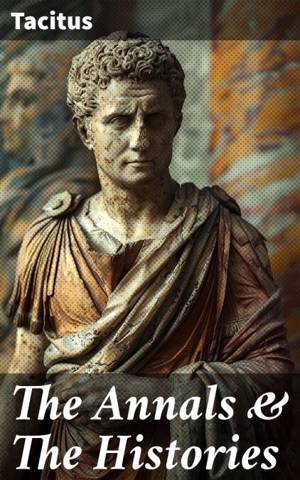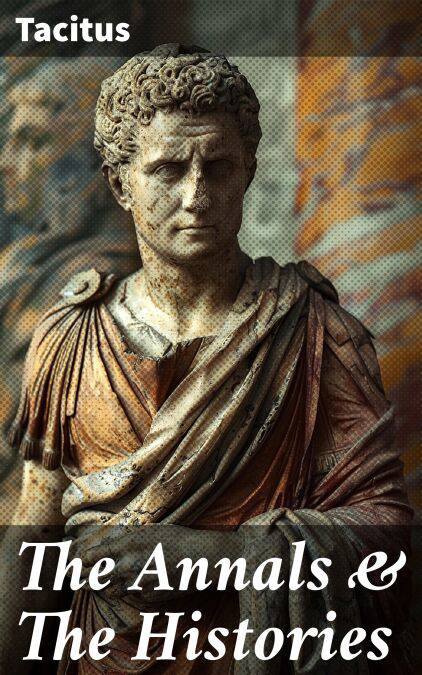
- Retrait gratuit dans votre magasin Club
- 7.000.000 titres dans notre catalogue
- Payer en toute sécurité
- Toujours un magasin près de chez vous
- Retrait gratuit dans votre magasin Club
- 7.000.0000 titres dans notre catalogue
- Payer en toute sécurité
- Toujours un magasin près de chez vous
The Annals & The Histories EBOOK
A Timeless Analysis of Power and Corruption in the Roman Empire
Tacitus
Ebook | Anglais
0,99 €
Format
Description
Tacitus' "The Annals & The Histories" stands as a monumental chronicle of the Roman Empire's imperial governance and civil strife from the death of Augustus in AD 14 to the year 70. Written in an elegant and concise style, Tacitus employs a meticulous narrative technique, blending historical rigor with a profound psychological insight into the motivations of political actors. The text is distinguished by its moral seriousness and the keen observation of power dynamics, presenting a vivid depiction of the tumultuous period characterized by political intrigue, corruption, and the fluctuations of power, all enriched by Tacitus' distinctive prose that interweaves dramatic narrative with astute analysis, reflecting the complexities of human ambition and ethical dilemmas in governance. Tacitus, a senator and historian of the first century, was profoundly affected by the political landscape of his time, marked by the transition from the Republic to an Empire. His life immersed in political and social spheres of Rome provided him with the insights and perspectives instrumental in crafting a narrative both reflective of his society's moral decay and a cautionary tale regarding absolute power. He grappled with themes of tyranny, the loss of republican values, and the integrity of history itself, making his works both personal and profoundly political. This essential text is recommended for readers interested in the intricate workings of power and governance, historians seeking rich narratives of the past, and anyone desiring to understand the complexities of moral integrity amidst the backdrop of political ambition. Tacitus' reflections and interpretations invite readers to ponder the cyclical nature of history, establishing the significance of his work in any comprehensive study of Roman history.
Spécifications
Parties prenantes
- Auteur(s) :
- Traducteur(s):
- Editeur:
Contenu
- Nombre de pages :
- 583
- Langue:
- Anglais
Caractéristiques
- EAN:
- 8596547670100
- Date de parution :
- 17-11-23
- Format:
- Ebook
- Protection digitale:
- Digital watermarking
- Format numérique:
- ePub

Les avis
Nous publions uniquement les avis qui respectent les conditions requises. Consultez nos conditions pour les avis.






